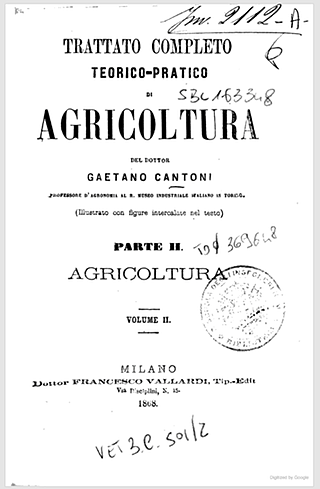
Podcast: Play in new window | Download (Duration: 17:16 — 14.3MB)
Subscribe: Google Podcasts | Spotify | Android | RSS | More
 People accused me of being a tease when I originally published that banner photograph up there and said that it was not a zucchini. It was, I admit, a deliberate provocation. It all depends on whether we’re speaking English or Italian. Because in English it isn’t, strictly speaking, a zucchini. It is a cocozelle, a type of summer squash that differs from a zucchini in a couple of important ways, one being that it hangs onto its flower a lot longer. So a flower on a cocozelle is not the guarantee of freshness that it is on a true zucchini. In Italian, however, it is a zucchini. Or rather, a zucchina. Because in modern Italian, all summer squashes are zucchine.
People accused me of being a tease when I originally published that banner photograph up there and said that it was not a zucchini. It was, I admit, a deliberate provocation. It all depends on whether we’re speaking English or Italian. Because in English it isn’t, strictly speaking, a zucchini. It is a cocozelle, a type of summer squash that differs from a zucchini in a couple of important ways, one being that it hangs onto its flower a lot longer. So a flower on a cocozelle is not the guarantee of freshness that it is on a true zucchini. In Italian, however, it is a zucchini. Or rather, a zucchina. Because in modern Italian, all summer squashes are zucchine.

Teresa Lust is a linguist and food writer. Harry Paris is a plant breeder who specialises in pumpkins, melons and the like. Together, they have just published a paper that pushes back the known history of the zucchini. They guided me through the somewhat convoluted history of true pumpkins in Italy.
It’s a story of exploration, aristocracy and promiscuity. What more could you want?
Notes
- Italian horticultural and culinary records of summer squash (Cucurbita pepo, Cucurbitaceae) and emergence of the zucchini in 19th-century Milan, by Teresa A. Lust and Harry S. Paris, Annals of Botany 118: 53–69, 2016
https://media.blubrry.com/eatthispodcast/p/mange-tout.s3.amazonaws.com/2020/blissful-feast.mp3Podcast: Play in new window | Download (Duration: 22:24 — 20.6MB)Subscribe: Apple Podcasts | Android | Google Podcasts | RSS | More
Teresa Lust teaches Italian at the Rassias Center for World Languages of Dartmouth College in New Hampshire and is an acclaimed translator. In some ways, that is the fault of a trip to her mother’s ancestral village in Rocco Canavese, outside Turin. There, she met her family and their foods, which started her on a quest to learn the language properly so that she could learn about the food. In her latest book she brings to life her journeys through Italy and shares the recipes, suitably enhanced for those of use who don’t have an Italian grandmother, and how she came to know them.
Notes
Teresa Lust has a website where you can find out more about A Blissful Feast.
Back in 2016, Teresa Lust and Harry Paris helped me to understand When is a zucchini not a zucchini?
Here is the transcript. Thanks to supporters for helping to make it possible.
Banner photo of grissini by Teresa Lust.
Huffduff it
http://media.blubrry.com/eatthispodcast/p/mange-tout.s3.amazonaws.com/Backyard-Breeding.mp3Podcast: Play in new window | Download (Duration: 16:30 — 15.5MB)Subscribe: Android | Google Podcasts | RSS | More
Carol Deppe was a guest here a few months ago, talking about how most people misunderstand the potato, which is about as nutritious a vegetable as you could hope for. I found out about that because I was checking out her new book, The Resilient Gardener, which offers all kinds of advice for making the most of home-grown food. In that, Carol talks about having bred a delicata squash with a taste like a medjool date. That sounded intriguing, but in a way not all that surprising. If anyone could breed a squash – or pumpkin – that tasted like a date, it would be Carol Deppe. Her earlier book, Breed Your Own Vegetable Varieties, is a wonderful, informative and accessible book about the science of plant genetics. It is, in fact, better than all the text books I’ve ever read on the subject. Which is not surprising, as that’s what Deppe set out to write.
The whole business of squashes seems fraught with difficulty. First off, what do you call them: zucchini, pumpkins, courgettes, summer squash, winter squash? Is there any difference (in England) between a baby marrow and a courgette, or between an overgrown zucchini and a marrow?1 And calling them by their Latin names doesn’t really help, because the same species can be used in different ways, and it is the usage that tends to determine what they’re called.
The idea of drying a summer squash for use through the winter is very appealing, and Carol says that costata romanesco, and old Italian heritage variety, is one of the few varieties suitable for treating in this way. Looking at pictures, it does seem to be very similar to the variety I see on the market here, so I’m determined now to see whether I can persuade my local vegetable seller to bring me an overgrown zucchini – a zuchone, or just a zucca? He’ll probably think I’m mad, when everybody else wants them as tiny as possible.
Notes
The Resilient Gardener is published by Chelsea Green Publishing.
A keen amateur breeder called Rebsie Fairholm was doing wonderful things breeding a purple-podded mange-tout pea, inspired and informed by Carol Deppe’s work. Alas, she seems to have stopped for now, although you can still read about her efforts on her website.
Banner photo by McBeth.
Intro music by Dan-O at DanoSongs.com.
Outro music, you shouldn’t be surprised to learn, is Tonight, tonight by the Smashing Pumpkins. Sometimes obvious is good.
Questions to which I returned in 2016: When is a zucchini not a zucchini? [↩]